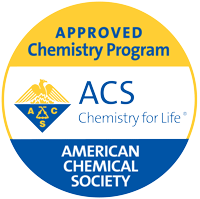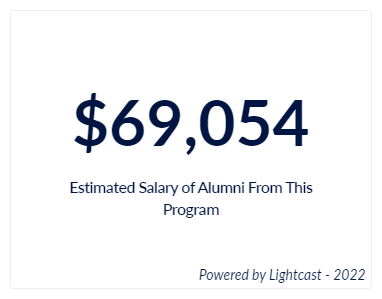Biology, Biotechnology Concentration, BS
The Biology, Biotechnology Concentration, BS program is geared toward students interested in careers in biomedical research, pharmaceutical research and development, as well as related fields including forensic science.
What Will I Learn?
In addition to a broad background in biology, chemistry and physics, you will take a series of courses specifically related to biotechnology, including:
 Cell biology
Cell biology- Immunology
- Molecular biology
- Biochemistry
- Analytical chemistry
- Biotechnology laboratory course
This concentration is designed to prepare the graduate for entry-level positions in biotech and/or pharmaceutical companies as well as acceptance into competitive post-graduate training programs in biomedical research or forensic science.

Meet Rosalia Cappadora '20
"The Biology Department is full of very knowledgeable professors. You will be challenged and helped every step of the way."
What Types of Careers Could I Get With This Degree?
An education in biotechnology will allow you to work in a variety of jobs in industrial, governmental and academic settings. These jobs can be in research, product development, production, quality control, technical writing, sales, education or administration.
Biotechnologists are involved in solving problems ranging from medical to ecological. Career areas include:
- Medicine: discovering new drugs, creating new vaccines, testing for diseases, gene therapy
- Agriculture: creating biological alternatives to chemical pesticides, developing disease and insect resistant plants
- Environment: bioremediation of wastes, analysis of endangered species populations
- Forensics: identification and analysis of physical evidence collected from crime scenes
- Food science: production of food products and dietary supplements, nutrient analysis of foods, detection of pathogenic organisms
- Animal science: genetic improvement of livestock, creation of improved disease treatments
This program can also prepare you for entry-level positions in biotech and/or pharmaceutical companies as well as acceptance into competitive post-graduate training programs in biomedical research or forensic science.
What Career Outcomes Do Alumni Have With This Degree?


What Kinds of Experiences Could I Have?
Expect to find success because of:
- Close proximity to many federal and state research labs, state forests and parks, and medical institutions for unique class visits and research or internship opportunities
- Charter membership of the Marine Science Consortium located at Wallops Island, Virginia, which leads to great opportunities for oceanographic study and research opportunities
- Small class sizes (normally 12-16 students only) and personalized attention from highly qualified professors
Our facilities and equipment for student research include:
- Fluorescence-based DNA sequencer
- Chromatography system for purifying and analyzing proteins and nucleic acids
- Imaging system for analysis of DNA and protein separations
- Thermal cyclers for PCR, equipment for electrophoretic analysis of DNA, RNA and proteins
- Tissue culture facilities
- Scanning electron microscope
- Greenhouse
- Animal care facility

